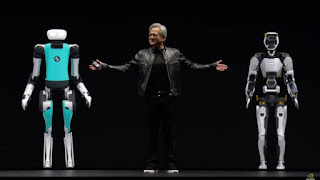- Saturday, February 01, 2025
Why Do Old Songs Always Feel Better Than New Ones?
I’ve often wondered why the songs I’ve already heard before always feel better than the new ones. It’s not just me; I’ve seen this with almost everyone around me. No matter how many new songs come out, we always go back to the ones we’ve already listened to.
There’s something about old songs that just hits differently. Maybe it's the memories attached to them or the fact that we’ve played them so many times that they feel like home. I can listen to Kishore Kumar’s "Mere Sapno Ki Rani" or Sonu Nigam’s "Ab Mujhe Raat Din" anytime, and they will still sound fresh. But when I try a new song, it takes time to connect with it.
Even with today’s artists, I find myself going back to the ones I already know. I really like Anuv Jain’s songs like "Baarishein" and "Husn," and no matter how many times I hear them, they always feel better than most new releases. The same happens with English songs. Ed Sheeran’s "Perfect," The Weeknd’s "Blinding Lights," or even Coldplay’s "Fix You" always feel more comforting than a brand-new song from the same artists.
I think it’s just how our minds work. Familiarity makes things enjoyable, and music is no different. New songs might be good, but they need time to become a part of our memories. Until then, we keep going back to our old favorites.
- Tuesday, January 28, 2025
- Saturday, January 25, 2025
- Wednesday, January 22, 2025
In today’s world, people often judge others based on money instead of their character or actions. It’s sad to see how wealth has become more important than kindness, honesty, or good deeds. It feels like the true value of a person doesn’t matter anymore if they don’t have money.
Take marriage, for example. Love and understanding should be the most important things, but for many families, money matters more. Parents look at how rich a man is instead of whether he will care for and respect their daughter. If he can show off expensive gifts or a wealthy lifestyle, he is seen as a good match. It doesn’t matter if he’s kind or responsible. Marriage, which should be about love and partnership, has turned into a deal. It’s like buying and selling, which is heartbreaking.
Healthcare is another sad example. If you’re rich, you can go to the best hospitals, get the best doctors, and afford expensive treatments. But if you’re poor, you have to wait in long lines, struggle in crowded hospitals, or worse, go without treatment. Many lives are lost simply because someone couldn’t pay for care. How is it fair that money decides who gets to live and who doesn’t?
This happens everywhere. People respect those with money, even if they’re rude or dishonest. But a poor person, no matter how good they are, is ignored. A rich man’s opinion is valued, while a poor man’s truth is dismissed.
It’s not right. A person’s worth should come from their actions, not their wallet. Good deeds, honesty, and kindness should matter more than wealth. But now, it feels like being good isn’t enough. You need money to be respected, to be heard, or even to get basic dignity.
We are losing the real values that make us human. If we keep living like this, the world will become a place where money is all that matters, and humanity will be forgotten. It’s time to change. We need to respect people for who they are, not how much they own. Wealth can buy comfort, but it can never buy true respect or honor. Let’s not forget what really makes someone valuable.





